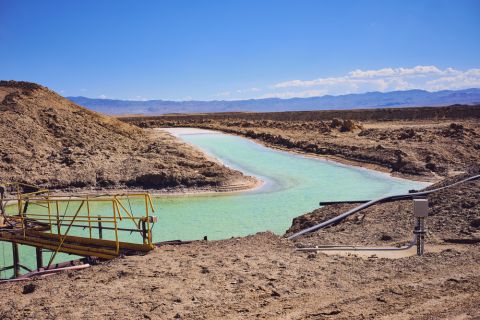
Rystad Energy and Wood Mackenzie executives said during an AAPG-Energy Opportunities event in Mexico City that oil will still be needed through 2050 and that the energy transition will take time. (Source: Shutterstock.com)
Learn more about Hart Energy Conferences
Get our latest conference schedules, updates and insights straight to your inbox.
MEXICO CITY—Fulfilling the Paris Agreement’s clean energy agenda will take time — and a slow transition to cleaner energy means a prolonged demand for oil until at least 2050, Rystad Energy and Wood Mackenzie executives said.
Based on the velocity of the energy transition, there is still a need for oil, Rob Cordray, senior vice president of consulting at Rystad said on March 22 during a panel discussion during the two-day AAPG-Energy Opportunities event.
RELATED: Permian Gas Production Set to Rise 41% by 2030, Rystad Says
“The transition is happening, and I don’t think the genie can be put back in the bottle, but at the same time this is going to take time,” Cordray said. “These are huge technological advances that need to be turned into huge projects.”
Moving forward, there will be demand for oil and gas amid increasing investor pressures and optimism around the energy transition. Even though major oil companies will take different approaches, there are numerous ways to do it, the executive said.
“So, we firmly believe there is not a one-size-fits-all solution for companies, governments, countries or anyone. Each and every basin, each and every place has its own pluses and minuses,” Cordray said.
Massive oil demand through 2050
By 2050 almost 1.2 trillion barrels of oil equivalent per day (boe/d) – comprised of 700 billion bbl of oil and 450 billion boe/d of gas – will be needed to meet demand over and above producing fields, Wood Mackenzie Energy Research Director Julie Wilson said during the panel.
“Despite there being discovered and prospective resources that far outstretch what is needed to meet demand by 2050… the problem is many of those resources are not advantaged, that is low-cost or low-carbon,” she said.
Wilson said a call-to-action plan for upstream companies, governments and regulators is necessary to address the headwinds the energy industry faces as it tries to meet oil demand due to the massive volumes needed to cover future needs.
Companies need to: renew exploration in new fields rather than revisit mature ones; make disadvantaged resources advantaged via technology; and push into the so-called super basins with the co-location of big upstream with renewables and carbon capture and sequestration within the same basin, as well as low-carbon alternatives.
Wilson said governments and regulators need to be clear on priorities, including considering a holistic energy tax system to meet multiple objectives. Policy and regulations should align with priorities top to bottom, while government agencies need to ensure clear jurisdiction at different levels, Wilson said.
Recommended Reading
President: Financial Debt for Mexico's Pemex Totaled $106.8B End of 2023
2024-02-21 - President Andres Manuel Lopez Obrador revealed the debt data in a chart from a presentation on Pemex at a government press conference.
Some Payne, But Mostly Gain for H&P in Q4 2023
2024-01-31 - Helmerich & Payne’s revenue grew internationally and in North America but declined in the Gulf of Mexico compared to the previous quarter.
Kimmeridge Fast Forwards on SilverBow with Takeover Bid
2024-03-13 - Investment firm Kimmeridge Energy Management, which first asked for additional SilverBow Resources board seats, has followed up with a buyout offer. A deal would make a nearly 1 Bcfe/d Eagle Ford pureplay.
Private Equity: Seeking ‘Scottie Pippen’ Plays, If Not Another Michael Jordan
2024-01-25 - The Permian’s Tier 1 acreage opportunities for startup E&Ps are dwindling. Investors are beginning to look elsewhere.
M4E Lithium Closes Funding for Brazilian Lithium Exploration
2024-03-15 - M4E’s financing package includes an equity investment, a royalty purchase and an option for a strategic offtake agreement.





